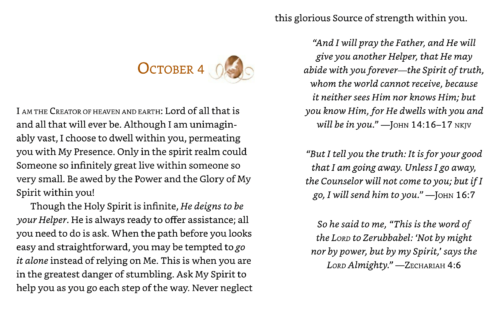
Week Forty: Francis and the Animals
Every Creature Is an Epiphany
A person who knew nothing but creatures would never need to attend to any sermons, for every creature is full of God and is a book. —Meister Eckhart, Sermon on Sirach 50:6–7 [1]
In honor of tomorrow’s feast of St. Francis of Assisi (1182–1226), this week the Daily Meditations team is sharing reflections on Francis’ affinity for the natural world and the animals who inhabit it. Fr. Richard reflects on the legacy of his spiritual father:
Each and every creature is a unique word of God, with its own message, its own metaphor, its own energetic style, its own way of showing forth goodness, beauty, and participation in the Great Mystery. Each creature has its own glow and its own unique glory. To be a contemplative is to be able to see each epiphany, to enjoy it, protect it, and draw upon it for the common good.
Living close to nature as he did, Francis could see Christ in every animal he encountered. He is quoted as talking to or about rabbits, bees, larks, falcons, lambs, pigs, fish, cicadas, waterfowl, doves, and the famous wolf of Gubbio, to name just a few. Those of you who love dogs know that each one is uniquely gifted by God and blesses our lives in special ways. Their unconditional love, forgiveness, and loyalty show us what God is like. My successive dogs, Peanut Butter, Gubbio, Venus, and now Opie, have enriched my life in many ways.
I really think human beings need someone to love, someone to awaken us to the flow of love and to keep that flow going. I can understand why so many people have adopted pets to ease their isolation during the pandemic! I often wonder if there doesn’t have to be an object (which then becomes a subject) whose goodness, truth, and beauty draw us out of ourselves. That someone doesn’t even have to be human; it can be an animal to whom we give ourselves and through whom we feel ourselves given back. Remember, our English word animal comes from the Latin word for “soul” or anima. Animals are ensouled ones!
I will never forget Venus’ amazing ability to make eye contact with me. She’d come to my bed around 5:30 in the morning, put her head on the side of the bed, and just look at me. And I’d roll over and try to get my eyes open and look back at her. Humans can’t seem to sustain eye contact for long. But dogs just keep gazing at us with their very “soulful” eyes. And I’d wonder: What did she see? What was she thinking? What was it that she genuinely seemed to like in me? They say the eyes are the windows to the soul. I’m convinced these beings that we thought lived at a rudimentary level of consciousness can see the one thing necessary: love! They don’t get lost in labeling and categorizing. Maybe that’s why they can maintain the flow of love—often unconditionally.
Seeing Things as They Truly Are
Richard continues exploring Francis of Assisi’s insights, pointing us beyond the “bird bath” spirituality for which Francis is too often known.
Francis of Assisi knew that the finite manifests the infinite, and the physical is the doorway to the spiritual. If we can accept this foundational principle we call “incarnation,” then all we need is right here and right now—in this world. This is the way to that! Heaven includes earth and earth includes heaven. There are not sacred and profane things, places, and moments. There are only sacred and desecrated things, places, and moments—and it is we alone who desecrate them by our lack of insight and reverence. It is one sacred universe, and we are all a part of it. In terms of a spiritual vision, we really cannot get any better or simpler than that.
Franciscan spirituality emphasizes a real equivalence and mutuality between the one who sees and what can be seen. What you see is what you are. There is a symbiosis between the mind and heart of the seer and what they pay attention to. Francis had a unique ability to call others—animals, plants, and elements—“brother” and “sister” because he himself was a little brother. He granted other beings and things mutuality, subjectivity, “personhood,” and dignity because he first honored his own dignity as a son of God. The world of things was a transparent two-way mirror for him, which some of us would call a fully “sacramental” universe.
As Franciscan sister Ilia Delio explains:
Francis came to realize that it is Christ who sanctifies creation and transforms it into the sacrament of God. The intimate link between creation and Incarnation revealed to Francis that the whole of creation is the place to encounter God. As his eyes opened to the holiness of creation, he came to see that there is nothing trivial or worthless. Rather, all created things point beyond themselves to their Creator. . . .
[The Franciscan scholar] Bonaventure [c. 1217‒1274] describes the contemplative vision of Francis as “contuition,” that is, seeing things for what they truly are in God. In his Major Legend, [Bonaventure] writes:
In beautiful things he [Francis] contuited Beauty itself and through the footprints impressed in things he followed his Beloved everywhere, out of them all making for himself a ladder through which he could climb up to lay hold of him who is utterly desirable. . . . He savored in each and every creature—as in so many rivulets—that fontal Goodness, and . . . sweetly encouraged them to praise the Lord. [1]
These footprints of God impressed on the things of creation enabled Francis to find God wherever he went in the world, and finding God in the things of creation led him to the embrace of Jesus Christ, for Christ is the Word of God made visible in the world. [2]
